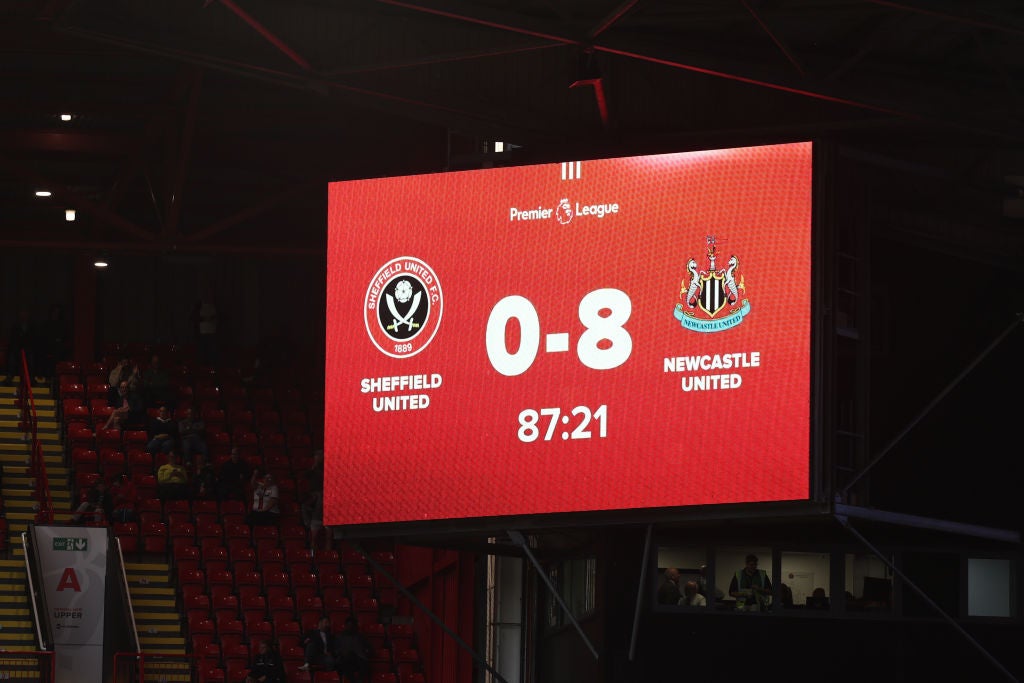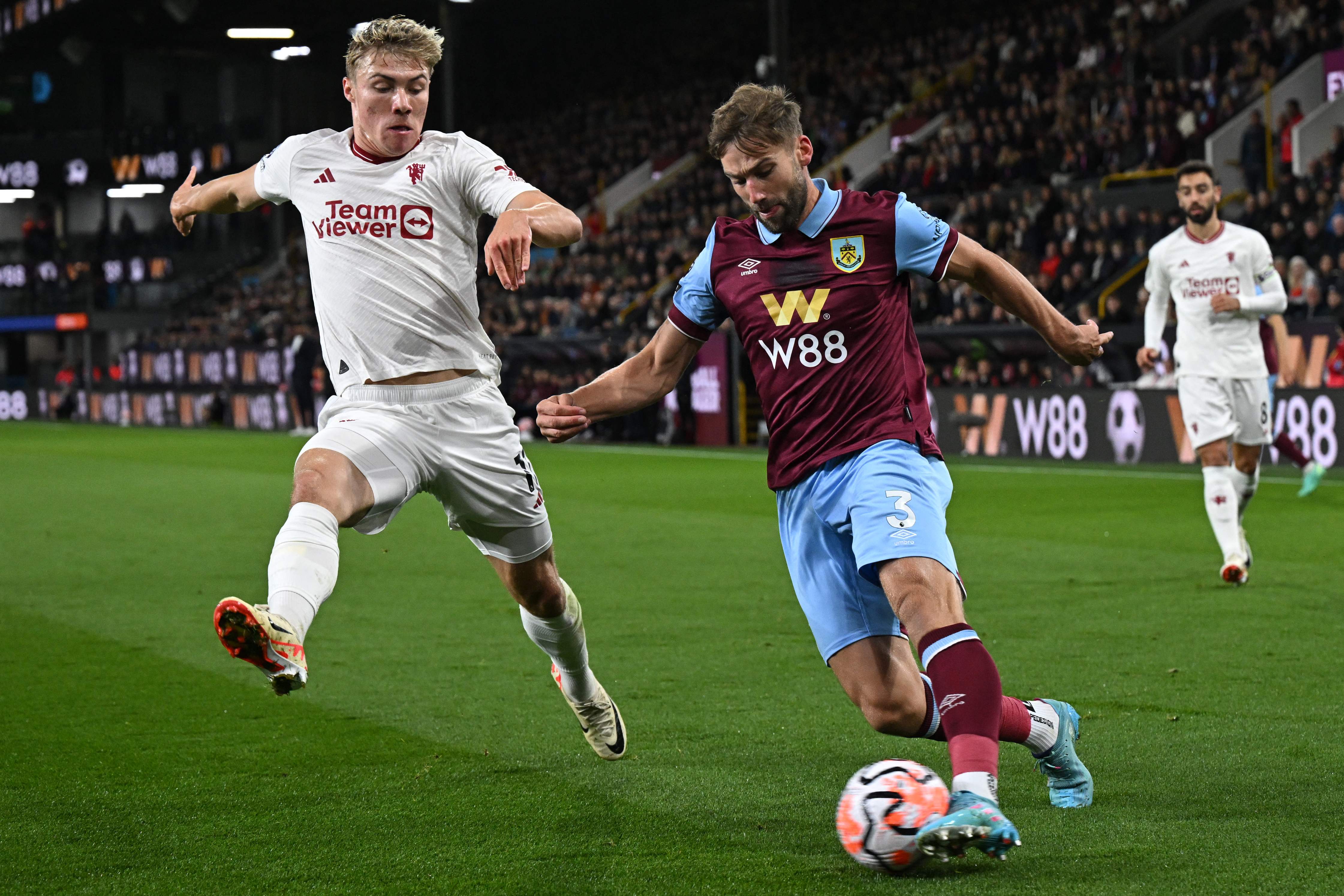Premier League promised land turns into nightmare for new boys
Sheffield United, Luton and Burnley have all struggled badly since promotion from the Championship

Played 16, won 0, drawn 3, lost 13. Goals for: 12. Goals against: 41. The Premier League is often described as the promised land. For three new arrivals – one via non-league a decade earlier, two effecting swift returns – the guarantee instead seems to be disappointment; at times embarrassment.
The bare facts are that Burnley, Sheffield United and Luton Town accumulated 78 victories in the Championship between them last season. With each away from home on Saturday, they may head into October with none in the top flight between them, perhaps still with just one point apiece. And if there is a very real chance that one gets a maiden triumph next month, it is because Luton host Burnley on Tuesday; it is a game that was postponed in August because Kenilworth Road was not ready, but both may wish it had been switched then to Turf Moor because it could have given the victor some momentum. Instead, neither has any.
And each can still look down on Sheffield United in the table, courtesy of the battering the Blades’ goal difference took on Sunday: some 131 years after joining the Football League, their 8-0 hammering by Newcastle was their heaviest defeat in it.
The logical conclusion is that each subscribes to the footballing law of gravity, that what came up must go down, and probably quickly. The macro-footballing analysis is to say that the gulf between the Premier League and the Championship, widened by money, is now unbridgeable. Except that, large as it undeniably is, all three promoted clubs stayed up last season.
So the individual features of three clubs and three campaigns still assume a pertinence. An early issue is that, thus far, both Sheffield United and Burnley could be deemed weaker than last season. United appear to have the one Saudi owner without any money, in Prince Abdullah. They were compelled to sell their two best players, in Iliman Ndiaye and Sander Berge, even if Cameron Archer and Gustavo Hamer offer promise as replacements. They won promotion on a pittance and looked short-staffed on the bench in August.
After coming agonisingly close to securing a point against Manchester City and all three at Tottenham, their obduracy at least boded well. Until, that is, they capitulated against Newcastle. It is the sort of result that could be an aberration or one that sends them spiralling downhill; that whispers of a return for Chris Wilder, the architect of their two previous promotions, continue could undermine Paul Heckingbottom. That his squad appears no better than the group who took two points from their first 17 games in 2020-21, albeit before a more respectable second half of the campaign, looks worrying.

For Burnley, being stripped of the loanees Nathan Tella and Ian Maatsen denied them their likeliest match-winner and their compelling attacking left-back. Their 15 summer arrivals did not include a left-back, a potentially costly omission that leaves the side looking unbalanced. That another loanee, Taylor Harwood-Bellis, was arguably their finest centre-back last year indicates that borrowing can be a method to go up, but clubs can be set back by losing their temporary recruits.
And yet Burnley cannot plead poverty, with their summer spending around £100m. The number of additions, after 16 last summer, suggests a pattern of permanent revolution. The glorious success of Vincent Kompany’s debut campaign meant their initial spree looked targeted rather than scattergun. For now, the temptation is to wonder if more of it should have been directed on pragmatic principles: the triallist Andros Townsend would have added Premier League experience to a callow group, for instance. A more proven centre-forward and centre-back might have helped.
Accusations of naivety dogged Burnley initially; that they have only conceded two goals in their last two games suggests they are learning rapidly. That their first four home matches were against the Manchester clubs, Aston Villa and Spurs meant there was always the potential to be early-season stragglers; none of the next five, in contrast, are against top-half finishers in the 2022-23 Premier League.
There are other grounds for hope. There is ambition to Kompany’s blueprint and potential in abundance in a youthful side. Adding Luca Koleosho, Zeki Amdouni to Manuel Benson, Anass Zaroury and Lyle Foster provides the prospect of match-winning pace and skill if they gel. That Zaroury and Foster have already incurred three-match bans for red cards, however, are indications of an awkward introduction.

If Kompany’s team have a higher ceiling and lower floor than Sean Dyche’s Clarets did, Luton offer certain comparisons with the attitude Burnley adopted in 2014-15: after Dyche secured a surprise promotion on a limited budget, Burnley banked much of the Premier League money, went down, then came back up again.
Even with 12 additions, it is notable that Luton largely targeted fine Championship players who could come into their element next season. The problem with a fairytale rise is that they look less equipped to cope than a yo-yo club would have been had they bounced back into the Premier League. And while Kenilworth Road may prove their greatest asset, they have only had two matches at home to test that theory. Manager Rob Edwards has tried, within the club, to blend optimism with realism. But Luton run the risk that they could be cut adrift, prompting a question of how they respond.
This, though, is a chance to kickstart their season. If their peers face tough tasks on Saturday, with Burnley visiting the Blades’ tormentors, Newcastle, and Sheffield United at West Ham, Luton go to Everton, goalless and winless at home. Dyche’s new side had seemed the likeliest candidates to ensure all three promoted clubs did not go straight back down again: beat Luton, however, and they go six points ahead of them, a gap that could prove insurmountable. Should the Hatters prevail, however, the team most assume are doomed could vault out of the relegation zone. So, in its own way, Everton against Luton may be the biggest game of the Premier League season so far. But perhaps only for three days: Luton against Burnley might be bigger still.
Join our commenting forum
Join thought-provoking conversations, follow other Independent readers and see their replies
Comments


Bookmark popover
Removed from bookmarks